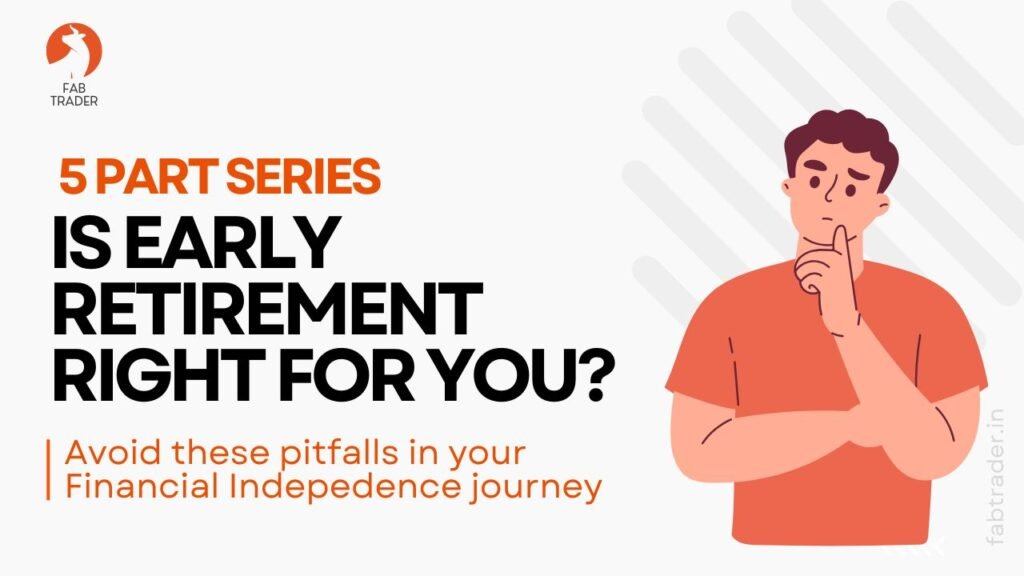
This five-part series aims to help you decide if early retirement fits your life goals, money situation, and personal circumstances. Each article looks at a key aspect of the early retirement choice offering deep insights and useful tools.
Part 1: Knowing If You’re Ready
The basis of any early retirement choice is how well you’ve prepared your finances. This isn’t just about reaching a certain amount in your investment accounts—it’s about getting a full picture of your money situation.
Main Money Factors to Think About
1. Will Your Savings Last?
Your retirement savings need to support you for maybe 40-50 years much longer than normal retirement. Think about: Did you check how your portfolio holds up in different market situations? What’s your plan for taking out money, and can you change it if needed? Do you have more than one way to make money, or do you rely on what your investments earn?
2. Healthcare Planning People who retire early face special healthcare issues:
Have you figured out how much healthcare will cost until you can get Medicare? How will you handle surprise medical bills? Have you thought about insurance for long-term care?
3. Risk Management Knowing about and getting ready for different money risks:
How do you plan to handle emergencies with money? Are your investments spread out in different areas? What kind of insurance do you need to have?
Part 2: Purpose and Identity in Early Retirement
Many people who want to retire think a lot about money but don’t consider how it might affect them . This article looks at the non-money things that can make your early retirement good or bad.
Finding Your Post-Career Purpose
- Identity Transition
How do you see yourself beyond your job?
What things do you do that make you feel like you’ve done something good?
How will you keep your mind active like work used to do?
- Time Management
When you retire , you have to handle a lot more free time:
What exact things will you do each day?
How will you keep some order in your life?
What things do you want to achieve?
Part 3: Social Connections and Relationships
Early retirement has a big effect on your social circle and relationships. To have a rewarding retirement, you need to understand and plan for these changes.
Building and Keeping Connections
- Family Dynamics
How will your retirement change your family relationships?
What part do you want to play in your family’s life?
Have you and your partner agreed on what to expect?
- Social Circle
How will you keep friendships when your peers still work?
What groups can you join?
How will you make new friends?
Part 4: Health and Long Life Planning
To retire and do well, you need solid plans for your body and mind.
Staying Lively
- Physical Health
What’s your plan for exercise and eating well?
How will you stay active without work-related movement?
What steps will you take to prevent health issues?
- Mental Health
How will you keep your mind active and engaged?
What’s your plan to avoid feeling cut off from others?
How do you intend to deal with the emotional shift?
Part 5: Resilience and Planning for the Future
The final section explores how to build adaptability into your early retirement plan.. To create a flexible retirement:
- Career flexibility
What backup plan do you have if the retreat doesn’t meet expectations?
How do you maintain your professional skills?
What part-time work or consulting opportunities interest you?
- Adapting to your lifestyle
How comfortable are you with adjusting your lifestyle?
What are your plans for different economic situations?
How do you deal with big life changes?
Are you ready to deep dive into this further?
Retiring early isn’t just a financial decision. But it is also a life change that must be carefully considered on many levels. Use this series as a guide to assess your readiness and create a comprehensive plan for your transition.
Disclaimer: The information provided in this article is for educational and informational purposes only and should not be construed as financial, investment, or legal advice. The content is based on publicly available information and personal opinions and may not be suitable for all investors. Investing involves risks, including the loss of principal. Always conduct your own research and consult a qualified financial advisor before making any investment decisions. The author and website assume no liability for any financial losses or decisions made based on the information presented.

